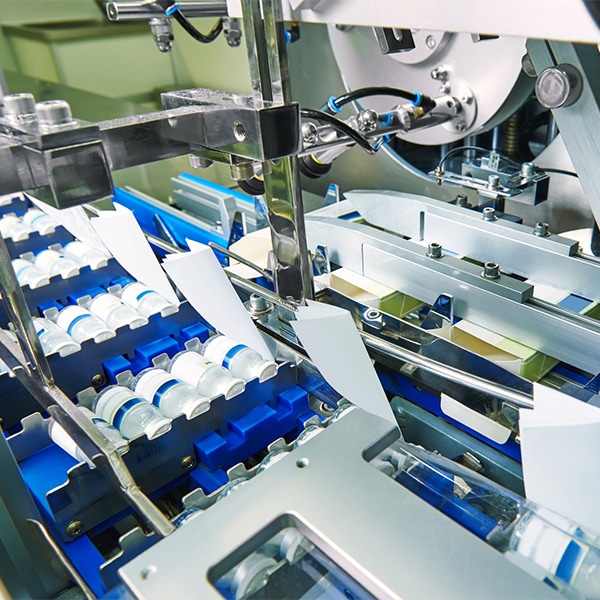Attention machine manufacturers: We provide GMP for machines
As a machine manufacturer, do you supply machines for the production of pharmaceuticals, active ingredients or even cosmetics, food and feed?
In these industries, quality assurance using GMP qualification plays not only one, but the central role, since quality deviations can have a direct impact on the health of consumers.
Numerous machine manufacturers are unexpectedly confronted with the fact that their customers ask for a GMP-compliant and therefore GMP-qualified machine. Suddenly, machine manufacturers have to worry about finding a company that “quickly” does a GMP qualification on the machine and then confirms it as GMP-compliant. And this is exactly where a search usually begins, which is costly and time-consuming.
Lehmann Engineering GmbH offers quick and reliable support:
Lehmann Engineering GmbH has been a reliable partner in the GMP qualification of machines and systems for the pharmaceutical, cosmetics and food and feed industries for more than 15 years.
Accordingly, we are familiar with the high requirements for the GMP qualification of machines and systems in these industries. Our employees are always up to date in order to meet the constantly changing requirements in these industries.
But what does the customer actually require from the machine manufacturer – what is GMP?
GMP means Good Manufacturing Practice.
These are the guidelines for quality assurance of the production processes and environment in the production of the above-mentioned drugs, active ingredients or also cosmetics, food and feed. A GMP-compliant quality management system serves to guarantee product quality and to meet the requirements of the health authorities that are binding for marketing.
What does GMP mean for you as a machine manufacturer?
The most important element for you:
- Qualification of equipment (systems and equipment as well as, if applicable, buildings and premises): It must be shown in a planned and documented process that equipment is suitable for the intended purpose and actually works reliably under the conditions on site (during commissioning and then in regular intervals).
There are 4 phases: - Design qualification (DQ): definition of the requirements (DQ plan, specification) and selection of equipment corresponding to the requirements (DQ report, specification or offer);
- Installation qualification (IQ): installation on site and checking whether all planned components and functions are available;
- Functional or operational qualification (OQ): Check by means of a function test whether the requirements according to DQ are met;
- Performance Qualification (PQ): Test under real conditions, e.g. Production of three batches with one system for test purposes, or analysis on typical samples and comparison with results from other devices.
A GMP-compliant quality management system includes further elements:
- Training of employees: Before starting work, employees must be adequately trained (e.g. SOP, practical training on equipment or systems, training in methods) and the training must be documented.
- Validation of processes and methods: It must be shown in a planned and documented process that processes (e.g. manufacturing processes) and methods (e.g. analytical methods in quality control) achieve results that meet the requirements for the product, and deliver reliably reproducible results.
- Risk management
- Document management
- Internal audits
The GMP qualification is not a “burden“ that the pharmaceutical industry, the cosmetics industry or the food and feed industry “just-for-fun” imposes on the machine manufacturers.
Rather, the industries mentioned are also tied by conditions in the form of guidelines from
- European Commission,
- Pharmaceutical Inspection Co-Operation Scheme (PIC/S),
- S. Food and Drug Administration (FDA),
as well as on a global level through the
- International Council for Harmonisation of Technical Requirements for Pharmaceuticals for Human Use (ICH) (previously for active ingredients and quality risk management).

